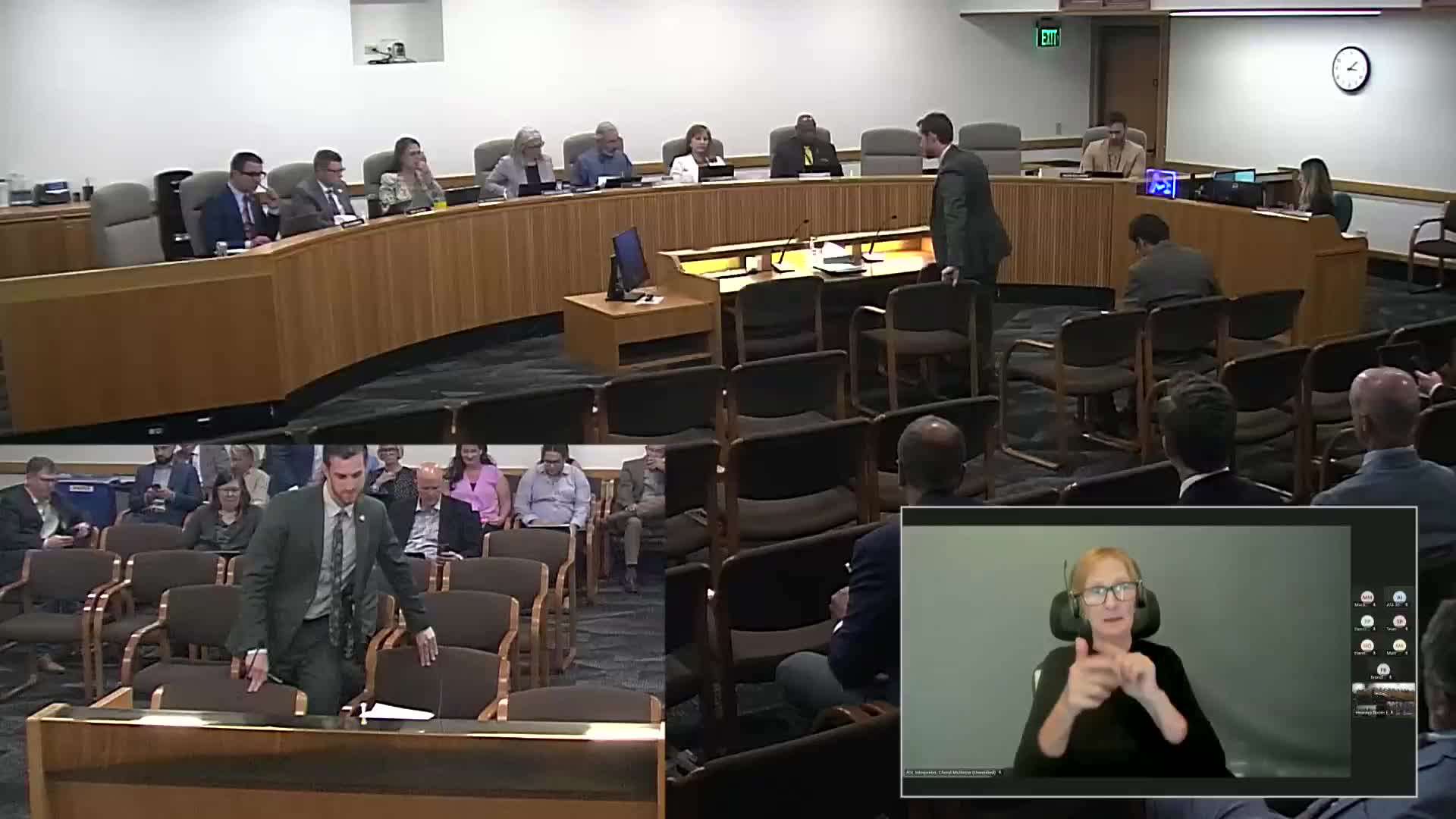Oregon bill would ban sale of precise location data and bar targeted ads to under-16s
Get AI-powered insights, summaries, and transcripts
Subscribe
Summary
At a May 5 public hearing, sponsors and privacy advocates urged the Senate Judiciary Committee to advance House Bill 2008A, which would amend the Oregon Consumer Privacy Act to ban the sale of precise geolocation data and bar processing of minors' data for targeted advertising; industry witnesses urged narrower language or tailored exceptions.
Representative Willie Chotson, one of the chief sponsors, told the Senate Committee on Judiciary on May 5 that House Bill 2008A would add two narrow but important changes to the Oregon Consumer Privacy Act: prohibit the sale of precise geolocation data and prohibit processing or sale of personal data for targeted advertising when the controller knows or willfully disregards that the consumer is under 16.
Chotson said the proposal grew from constituent concerns about rapid technological change and data brokers. "A really common-sense bill that is aimed at protecting children and families," he said, and he urged the committee to adopt the A-4 amendment that reorganizes existing OCPA text for clarity without changing the substance.
The bill would add a bar on selling personal data that accurately identifies a consumer within a radius of 1,750 feet and would remove the existing "acts" exception that otherwise can allow processing or sale where a consumer has consented. On the House floor the measure passed unanimously; Chotson told senators the bill previously received "51 I's and 0 nay's." The sponsor and witnesses emphasized the measure does not ban collection or sharing of location data in all settings, and that nonprecise, coarse location uses remain permitted.
Witnesses for the bill framed the proposal as a consumer-protection step. Hannah Osmond of Oregon Consumer Justice said the bill "builds on existing protections by first expanding protections for minors and secondly prohibiting the sale of precise geolocation data." Matt Schwartz, a policy analyst with Consumer Reports, told the committee location information is uniquely sensitive because it can reveal where people worship, where they seek medical care and when they attend protests, and said the bill would put baseline protections in place.
Privacy advocates urged the committee to keep the language tight. Katrina Fitzgerald, deputy director at the Electronic Privacy Information Center, said the bill's sale prohibition is limited to precise radius-level location data and would not stop legitimate uses such as weather alerts or other transfers that are not sales. "Banning the sale of precise geolocation data and data of minors is a common-sense update to Oregon's law," Fitzgerald testified.
Industry witnesses supported the bill's child-protection provisions but urged narrower language on geolocation. Jason Knapp, chief legal officer and chief privacy officer at InMarket, said his company supports the child-directed elements but asked for a tailored approach that preserves mainstream advertising use cases where consumers give clear, affirmative consent. David Leduc, vice president for public policy at the Network Advertising Initiative, urged the committee to adopt standards that would prohibit selling precise data tied to sensitive points of interest and to prohibit transfers to law enforcement or national-security uses except on legal process.
Committee members pressed witnesses on specifics. Senator Prozanski and others asked why 1,750 feet was selected; Chotson replied that the OCPA already defines precise geolocation at that threshold and the bill follows the existing statutory definition. Senators also asked how the A-4 amendment changes the draft; witnesses said the dash-4 mostly moves language to improve clarity and capture examples such as consumer social-posting that the OCPA already exempts.
The committee recessed the public hearing on HB 2008A to take other testimony and later reopened it to hear remote and in-person witnesses. No final committee vote on HB 2008A occurred at the May 5 session; the hearing record shows detailed stakeholder engagement and competing drafting proposals the committee may need to reconcile.
Ending: The bill remains pending with the A-4 amendment noted by the sponsor. Supporters asked the Senate not to narrow child protections; industry representatives asked for tailored carve-outs or an approach based on enhanced voluntary standards. The record shows unanimity in the House and active, substantive debate in the Senate public hearing that will likely inform any amendment the committee adopts.
